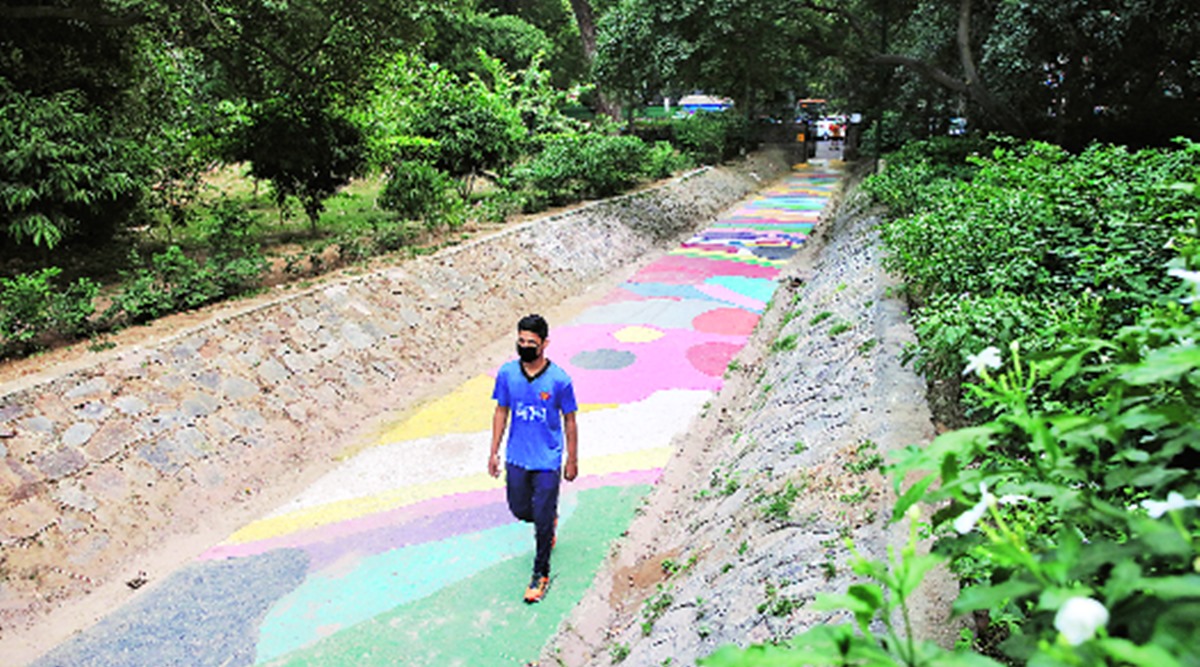 The study noted a decline in physical exercise. (Photo: Abhinav Saha)
The study noted a decline in physical exercise. (Photo: Abhinav Saha)Almost nine months of the pandemic marginally improved people’s eating behaviour, yet a third of participants gained weight as physical activity declined while screen and sitting time increased, a study conducted by AIIMS researchers to evaluate Covid’s impact on lifestyle changes has found.
Mental health was also adversely affected and quarantine-induced stress and anxiety showed an increase by a unit in nearly one-fourth of the participants.
A cross-sectional web-based survey was taken on 995 people between August 15 and August 30 across various cities, towns and villages in India. The data was collected through an online survey and telephonic interviews.
Dr Piyush Ranjan from the department of medicine at AIIMS and co-author of the study said: “People need to stay invested to stay healthy. Covid-19 came as a shock to everyone but apart from the virus-related damage, there are several collateral damages to the body. The aim of the study was to find out the impact on the lifestyle-related behaviours of participants.”
Reasons for improvement in healthy eating and decline in junk food consumption included fear of catching Covid (43.8%), preferring home-cooked food (25.2%) and less involvement in eating out and socialising (23.6%).
Participants’ fear of getting infected by coronavirus (23.6%), worrying about their family (20.2%) followed by boredom and loneliness (18.2%) and financial loss (14.7%) were the most commonly reported reasons for stress and anxiety levels increasing during Covid.
Stress points
According to the study, participants' fear of getting infected by coronavirus (23.6%), worrying about their family (20.2%) followed by boredom and loneliness (18.2%) and financial loss (14.7%) were the most commonly reported reasons for stress and anxiety levels increasing during Covid.
Although, some participants took up physical activity by walking (28.9%), at-home workout sessions (18.9%) and yoga (16%); adverse changes in physical activity levels were reported due to lack of motivation (24.5%), time availability (25.3%) and restricted access to parks, dance and fitness centres (28.6%).
“Quota sampling technique was used to identify quotas based on different demographic variables such as age, gender, socio-economic strata and place of residence. The number of participants in each quota was compared with the prevalence of different categories in Indian population and efforts were made to sustain maximum representativeness,” said Dr Ranjan.
A reduction in physical activity coupled with an increase in daily screen time was found especially among men in upper socio-economic strata. Besides, the time spent daily on screen time increased by one unit in one-third of the sample (30.65%) and overall sleeping hours increased in one-fourth of the sample (25.53%). Although, overall social support from the family and friends (20.8%) during Covid-19 improved as well.
Sakshi Chopra, PhD scholar at AIIMS and another author of the study, said “There has been a lot of constraint and social distancing during the lockdown and we have been confined to our homes. We saw that there has been a change in eating habits, the way of interacting and the amount of physical activities. Several people lost their jobs as well, which led to financial trouble and mental stress. There are always fallouts in a pandemic which is more than the mortality and morbidity that we see.”